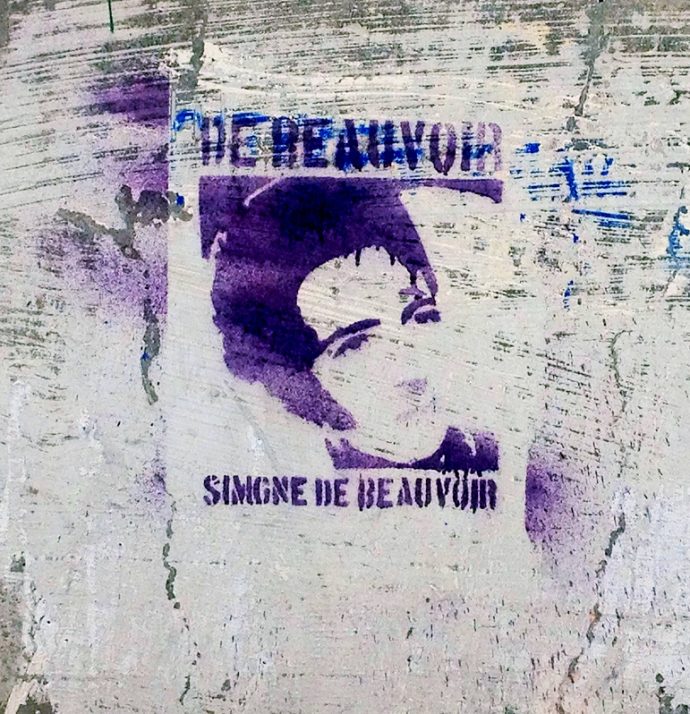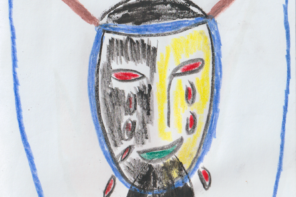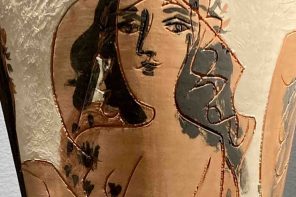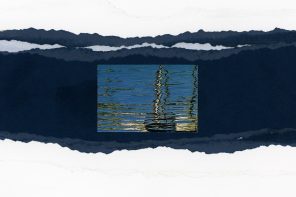On Saturday, July 17th, 1948, Simone de Beauvoir wrote to Nelson Algren, “It is hard to get up in the morning, it is the worst time.” Simone offers no explanation for why this is. The rest of the letter only details her traveling and plans for the next few months, including going away with John Paul Sartre to work. In closing, she admits it’s a silly letter about nothing important. She writes, “reality is behind me, far away; it is our love, our life.”
General insomnia and the inability to wake up with ease have become remorseless parts of my identity. I was particularly terrible at waking up as a child. Nothing made my mother angrier than how difficult it was to wake me. One morning, after she had woken me up several times for school, I finally got up and dressed. Then I hid back under the covers. She came back in, swearing and shouting, only to realize I was playing a trick on her. I wasn’t still asleep. Under the covers, I had my shoes on. I was completely ready to go.
I used to write to you every day, “I hate waking up.” It was my first action of the day, through squinting eyes. You said this was endearing. You would always be awake before me, and reply right away. I imagine you were often awake waiting for me to wake up, waiting for me to tell you how much I hated waking up.
I supposed I feared the day when I would no longer be able to send you those messages. When our knowing each other would sink behind everything, and we would become strangers again.
It is a misbelief that the best place to buy Anglophone books in Paris is Shakespeare and Company. While a very good and important bookstore, all their books are brand new and imported from the UK. In order to find the best, cheapest, most diverse books, you must walk about ten minutes away to Berkeley Books of Paris, which offers the best selection in the city.
Simone de Beauvoir is famous for many things, including her philosophical writing, most importantly The Second Sex, published in 1949, and her novels, such as The Mandarins, which won the Prix Goncourt in 1954, the same year it was published.
I read The Mandarins in English—I was lazy and didn’t feel like reading it in French. The translation was so bad I gave up after 300 pages. Afterwards, I read an academic essay about Beauvoir’s use of the erotic. The writer showed how the English translation of The Mandarins excluded all the mentions of oral sex in the original French. I missed out.
She was also famous as a type of “intellectual celebrity” in France, along with John-Paul Sartre, with whom she shared her life. They were never married, never lived together, but were otherwise inseparable throughout the rest of their lives. They’re buried together in the cemetery of Montparnasse. I attended school for a year five blocks away from their graves.
When I worked in a bookstore in Manhattan, I complained that we shelved Simone under D instead of B. It wasn’t grammatically correct. I complained several times over this and then was allowed to resolve it. In order to switch it, I had to find all of Simone’s books in the whole store. I was greatly displeased to find that we shelved The Second Sex in women’s studies, and therefore the only work of hers found in philosophy was a book she published of interviews with Sartre. I complained again. Magically, her books started appearing in the bookstore. We shelved them in nonfiction, fiction, women’s studies, and philosophy. I’m not sure they’ve been selling very well, but I blame the prudish translators for that.
You had freckles on your shoulder, but not your cheeks. I’m not really sure how they got there, because I’m not really sure the sun put them there. They weren’t usual freckles. It was like they were freckles specifically placed on your shoulders for me to find them.
Abbey Books in Paris is a really shitty bookstore, although it’s in most tourists’ travel guides. They give you free coffee with maple syrup in it, because it’s a Canadian bookstore, but that’s where the joy of it ends. It’s overpriced and unorganized. Once I asked one of their booksellers for Joan Didion’s The Year of Magical Thinking, and I was told it was in either nonfiction, memoir, or philosophy. No one was sure. San Francisco Books, on the same street as Berkeley Books, is pretty good though. I got a copy of Moby Dick there for a euro. I even found a very specific copy of Saul Bellow’s Herzog after having looked for it for over three months.
Moby Dick was for a book club with one other person. I finished it, only taking one break to read Leaving the Atocha Station by Ben Lerner midway through. My book club partner didn’t finish it. I don’t talk to them anymore, which is disappointing to say the least. I hope they have picked it up again and gotten to the end. It’s one of my favorite books. I read it almost entirely on the Paris Métro. I would pretend being underground was like being at sea.
I never imagined my book club partner and I would become strangers like you and I have. I was always scared of losing you when I had you, and then I did. I’m also scared of spiders. And it’s not illogical. Spiders bite.
My favorite part of Herzog is when Herzog decides to send a telegraph to the man his wife left him for. Western Union won’t allow him to send a death threat, so he sends Dirt Enters At The Heart. The first letter of each word spells out DEATH. I mailed you the copy of Herzog two months after we stopped talking. It was very dramatic. Not as dramatic as a death threat via Western Union acrostic, but still.
On Friday, September 17th, 1937, Simone de Beauvoir writes John-Paul Sartre, “When I wake up each morning it makes me sad to think I’m going to spend another long day without you.” When she writes him again on Friday, the 22nd of July, 1938, she says, “I’ve been waking up these past few days with a keen longing to see you.”
I don’t text anyone that I hate waking up anymore. Now, I simply must close my eyes for a moment, think this to myself, and then wake up.
Sarah McEachern is a writer of shortish and longish things. She has been published by Five2One‘s #thesideshow, Potluck Mag, and the University of Kent’s The Menteur. She was formerly the co-founder and editor of Broken Yolk, Sarah Lawrence College’s alternative literary magazine. She lives in Brooklyn, where she is currently a fellow with Wendy’s Subway.




